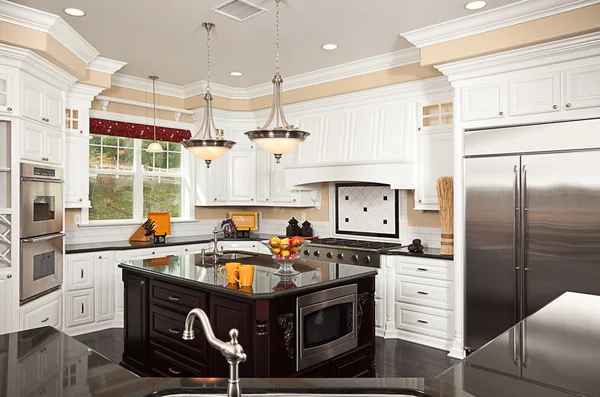Many homeowners are unaware that they may need to obtain a permit for their kitchen remodel. Skipping the permit process can cause numerous problems. Local authorities can issue a stop-work order or a significant fine for unpermitted work.
Some common kitchen remodeling projects that require a permit include changing door and window sizes, painting, installing new flooring, moving electrical or plumbing fixtures, and knocking down walls. A reputable contractor will be familiar with your town’s permit requirements.
Find out why maintaining property value, safety, compliance, and quality assurance all depend on obtaining a kitchen remodel permit.
Local Government
Your local government may require you to acquire a permit for your kitchen remodel. This is to ensure that the project complies with the appropriate regulations. It can also help prevent complications and fines in the future. The exact permits you’ll need will vary depending on the type of remodel and your location. For example, some minor projects like painting and replacing windows will not need a permit, while others, such as moving electrical or plumbing fixtures will need one.
When in doubt, consult a licensed home remodeler. They can walk you through the process of acquiring any necessary permits. They can also assist you with obtaining any inspections that may be required by your city. They can also offer advice on how to complete your remodeling project within the permitted timeframe. It is important to avoid contractors that dismiss the need for permits, as this may indicate they regularly perform unsafe and unregulated work.
Licensed Contractors
A licensed kitchen remodeling contractor will be well-versed in the local permitting requirements. A good contractor can help you determine if your renovation requires a permit and the duration of time it may take to get it. They can also help ensure that your project complies with the city’s building codes to avoid any issues or delays down the road.
For example, you will need a plumbing permit if you are moving or replacing sinks, dishwashers, refrigerators or gas lines. You will also need a plumbing and electrical permit if you are adding outlets or installing new appliances. You will need a mechanical permit for HVAC systems and ductwork changes or additions, and a zoning permit may be required if you are changing the layout of your kitchen.
While permits and inspections may be an inconvenience, they are there to keep you safe and to protect your investment. Don’t skip out on these important steps to save a few dollars on your kitchen remodel, as non-compliance could cost you much more in the long run.
Architects
Licensed architects and engineers are well-versed in local construction codes and can help you determine if your kitchen remodel requires plans and permits. They can also submit the applications and serve as your Architect of Record during the process.
You may need a permit for the following types of renovations:
It is important to apply for any necessary permits as early as possible in your kitchen remodeling project. This will avoid any unnecessary delays. It is also a good idea to consult with your contractor and kitchen remodeler to ensure that all work being performed is up to code and complies with any local regulations. It is worth avoiding contractors who are willing to skip permit processes for their own benefit as this can have serious legal consequences. Unpermitted renovations may even void your home insurance or cause issues with selling or refinancing your property in the future.
Online Resources
Many homeowners are unaware that they need a permit for their kitchen remodeling project. Even if your project is relatively small, you may need a permit to make sure the work meets local codes. It’s always best to consult with your contractor and check with your city to see if a permit is required before you start your project.
Experienced contractors like Long Island Creative Contracting are familiar with local requirements and will take care of obtaining any permits necessary for your project. This can save you a lot of time and money in the long run, and will ensure that your renovation is done correctly. In addition, working without a permit could invalidate your insurance and cause problems when it comes to selling your home. It’s always worth the extra effort to get your permit! In most cases, it’s also a good idea to get a permit for electrical or plumbing changes. This will help ensure that the work is up to code and safe for your family.



